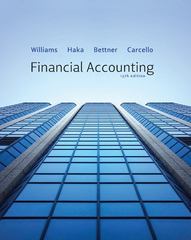Question
Marvel Parts, Inc., manufactures auto accessories. One of the company's products is a set of seat covers that can be adjusted to fit nearly any
Marvel Parts, Inc., manufactures auto accessories. One of the company's products is a set of seat covers that can be adjusted to fit nearly any small car. The company has a standard cost system in use for all of its products. According to the standards that have been set for the seat covers, the factory should work 1,020 hours each month to produce 2,040 sets of covers. The standard costs associated with this level of production are: Total Per Set of Covers Direct materials $ 37,740 $18.50 Direct labor $ 9,180 4.50 Variable manufacturing overhead (based on direct labor-hours) $ 2,448 1.20 $24.20 During August, the factory worked only 1,000 direct labor-hours and produced 2,900 sets of covers. The following actual costs were recorded during the month: During August, the factory worked only 1,000 direct labor-hours and produced 2,900 sets of covers. The following actual costs were recorded during the month: Total Per Set of Covers Direct materials (9,100 yards) Direct labor $ 52,780 $18.20 $ 13,630 4.70 Variable manufacturing overhead $ 4,640 1.60 $24.50 At standard, each set of covers should require 2.5 yards of material. All of the materials purchased during the month were used in production. Required: 1. Compute the materials price and quantity variances for August. 2. Compute the labor rate and efficiency variances for August. 3. Compute the variable overhead rate and efficiency variances for August. (Indicate the effect of each variance by selecting "F" for favorable, "U" for unfavorable, and "None" for no effect (i.e., zero variance). Input all amounts as positive values.) 1. Materials price variance 14,560 F Materials quantity variance 13,690 U 2. Labor rate variance 7,400 U Labor efficiency variance 4,050 F 3. Variable overhead rate variance 2,200 U Variable overhead efficiency variance 4,050 F > Answer is complete but not entirely correct. 1. Materials price variance 14,560 F Materials quantity variance 13,690 U 2. Labor rate variance U Labor efficiency variance 4,050 F 3. Variable overhead rate variance U Variable overhead efficiency LL F variance



Step by Step Solution
There are 3 Steps involved in it
Step: 1

Get Instant Access to Expert-Tailored Solutions
See step-by-step solutions with expert insights and AI powered tools for academic success
Step: 2

Step: 3

Ace Your Homework with AI
Get the answers you need in no time with our AI-driven, step-by-step assistance
Get Started


